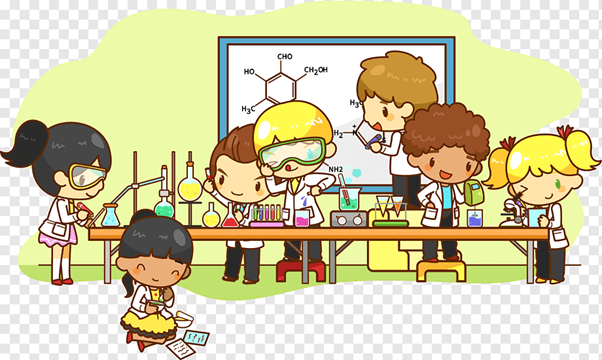“Why do we even need to learn this?”
That’s the question I often hear whispered around me in Chemistry class. Sometimes it’s followed by, “This is too hard,” or, “I’m just not smart enough for this subject.” I get it—I’ve said those things too. But after some time reflecting and paying attention, I realized something: maybe the problem isn’t just the students. Maybe it’s how we learn, how we’re taught, and how we’re shown the real meaning of Chemistry in our daily lives.
Let’s be honest. Chemistry can feel intimidating. There are strange symbols, scary equations, and complex reactions. If it feels like it’s meant for geniuses or future scientists only, that’s not totally wrong—but also not entirely fair. The problem is when no one tells us why we’re learning it, or how it fits into our lives as ordinary teenagers.
More Than Just the Periodic Table
First, let’s talk about that big question: What’s the point of learning Chemistry? It’s not enough to say, “Because it’s part of the curriculum.” The real answer needs to connect with us. Chemistry helps us understand what things are made of and how they change. That’s huge! Every time we cook, clean, get sick, take medicine, even fall in love—yes, even that—there’s chemistry involved.
If you’re into skincare, have you ever wondered why certain products help acne or brighten your skin? That’s Chemistry. Into sports? The way your muscles use oxygen and convert energy is Chemistry. Love coffee? Brewing it is a chemical process. Everything from the colours in fireworks to how your phone battery works—Chemistry is right there, doing its thing.
Not Just a Student Problem
So why do so many students feel lost or overwhelmed in Chemistry class? From my own experience and from talking to friends, I think one reason is this: we are rarely told the why. We’re thrown into formulas and lab reports without much context. Imagine being given puzzle pieces without seeing the full picture. It’s frustrating.
Also, the way Chemistry is sometimes taught makes it feel like a subject that lives only in textbooks. But the truth is, Chemistry is alive in the kitchen, in the bathroom, even in our lungs. We need a way of learning that brings it closer to real life. Less memorizing, more understanding.
Bridging Theory and Practice
The coolest Chemistry classes I’ve had were the ones where we did experiments with stuff we actually see every day. Like testing the acidity of different drinks, or checking which materials are best at keeping things warm. Suddenly, Chemistry wasn’t just about electrons—it was about real problems and real solutions.
One time, we discussed chemical reactions using food. We looked at why bananas turn brown and how lemon juice can slow that down. That class made me realize Chemistry is everywhere—on our plates, in our trash bins, and in our daily habits.
Let’s Change How We Teach It
To really help students like me understand Chemistry, we need to change the way it’s introduced:
- Start with Real Questions – Don’t begin with definitions. Start with problems we actually care about. “Why does sweat smell?” or “How do energy drinks affect our body?”
- Use Simple Language – Complex topics don’t have to be explained in complex words. Make it like a story. Make it visual. Use videos, memes, or anything that helps the idea click.
- Show the Real-Life Link – If we’re learning about acids and bases, let’s connect that to indigestion, toothpaste, and fizzy drinks.
- Encourage Questions, Not Just Answers – We don’t always need to know the exact answer. But asking the right question is the first big step in science.
Why It Matters for the Bigger Picture
I know it sounds cliché, but the truth is—students are the future. If we don’t understand science, how will we handle big problems like pollution, food safety, or pandemics? Chemistry is the key to so many parts of life. And it’s not just about becoming scientists. It’s about becoming smart citizens who understand the world a little better.
Imagine a student who understands how CO2 affects the atmosphere because of a Chemistry project. That student might not become a chemist—but they might become someone who cares more about climate change. That matters.
Conclusion: Let’s Make Chemistry Make Sense
Learning Chemistry shouldn’t feel like torture. It should feel like discovery. Like figuring out how the world works, one molecule at a time. But for that to happen, we need help—from teachers, schools, and even society. We need to stop saying, “You just don’t get it,” and start asking, “How can we make this click for you?”
Because the moment we see that Chemistry is not about memorizing—but about understanding life—that’s when it gets exciting. That’s when we stop asking, “What’s the point of this?” and start asking, “What else can I learn?”
And maybe one day, a student like me will say, “I love Chemistry. It actually makes sense.”

